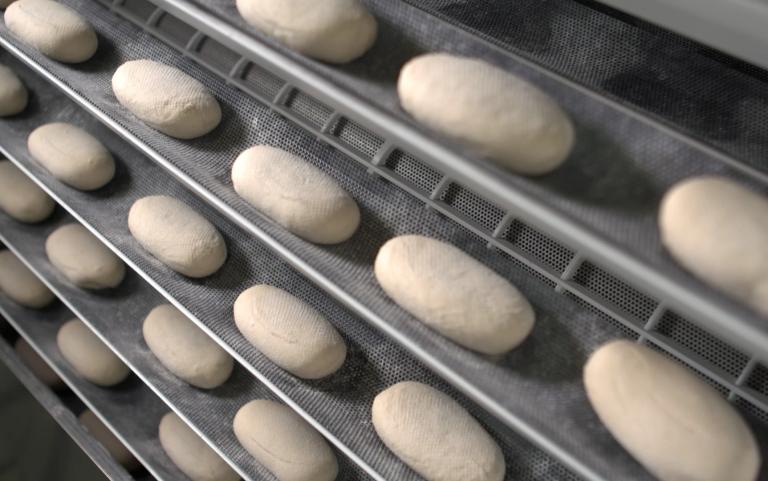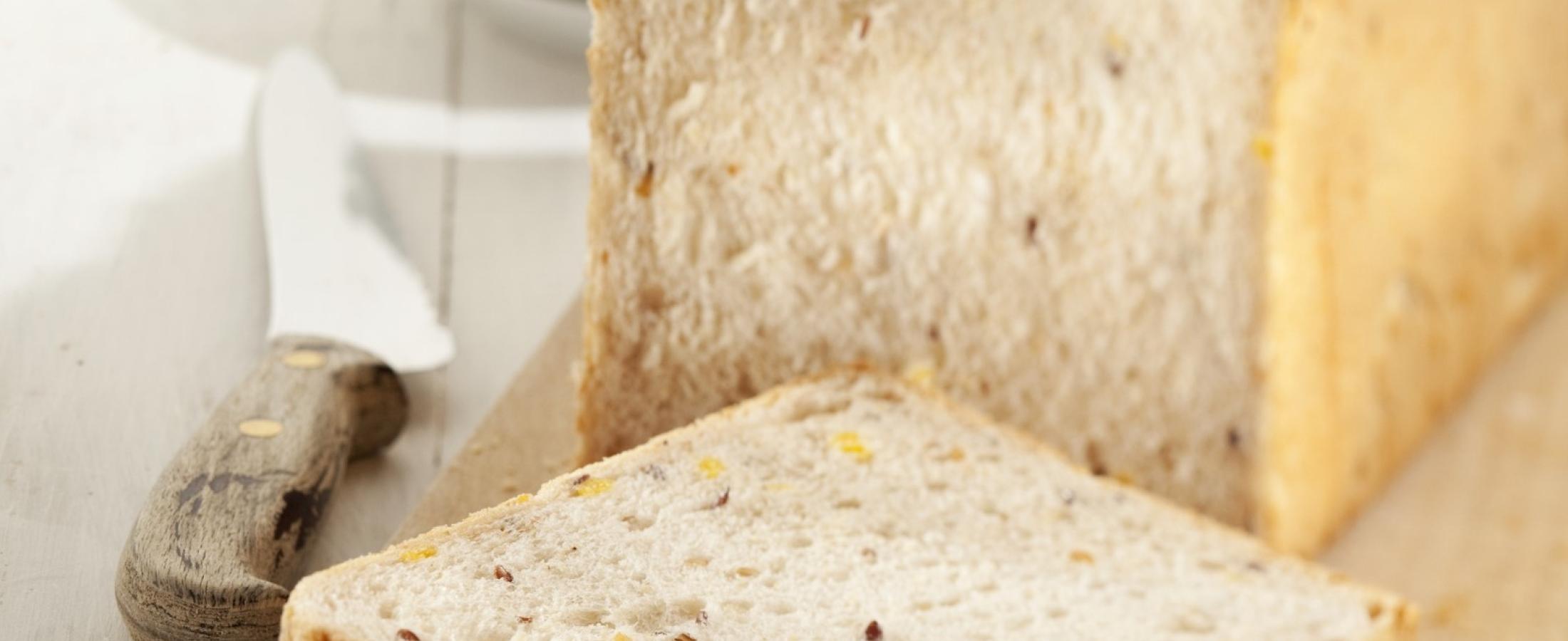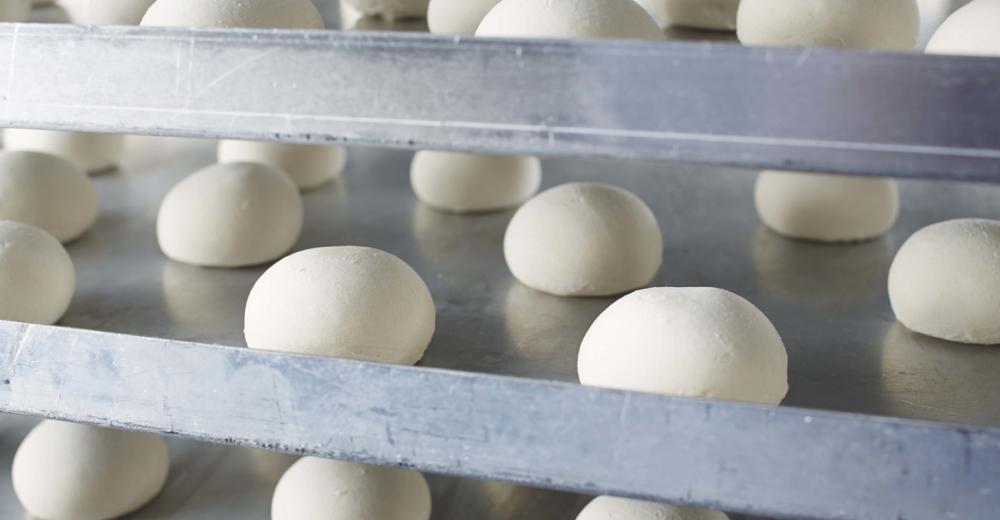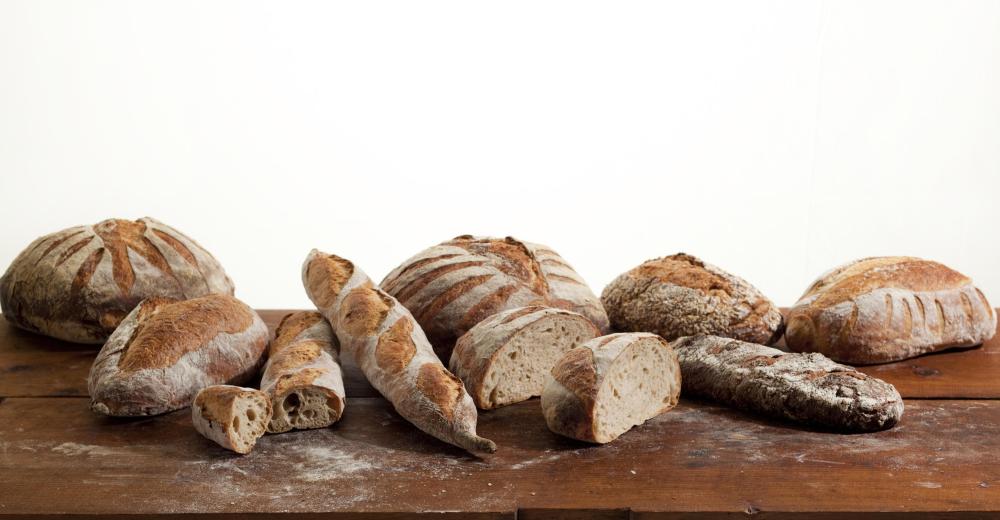As an industrial baker, you are always looking for ways to improve the quality of your bread, increase shelf life and reduce production costs. With the use of bread improvers, we give you the solutions to your business needs and help you to grow your business. A stabilised baking process will lead to higher-quality bread, pleasing not only your customers and final consumers, but increasing your profits thanks to a more efficient production process.
It all begins with the flour
Flour is, of course, the main ingredient in bread making. However, each flour is unique, and the quality of each flour delivery is not entirely predictable due to changes in harvests and miller variations. This will lead to dough varying in terms of viscosity, stability and how starch gels during baking. The dough that is made with different types of flour will also develop individually in terms of viscosity, volume, dough stability and how starch gels during baking . In short, different types of flour produce different results, even when the recipe and baking process are identical.

At Zeelandia, we analyse how different types of bread flour perform and how bread improvers can be used, either to improve the quality of the end product or, in an industrial setting, to make the dough easier to process.
BIT as a building block
Bread improvers are designed to compensate for the variations in flour quality by offering additional ingredients. These ingredients improve the gluten structure, increase dough extensibility and enhance the overall quality of the bread.
Based on our analysis, we construct a tailored recipe for your bread improver mix. This consists of a blend of carefully selected ingredients to meet your specific needs. What is bread improver made of? A typical bread improver recipe contains ingredients such as sugar, oils, fats, fibres, additives and processing aids, and each has its own role to play.
Many processing aids like enzymes have similar effects to additives, but with one major difference. As they do their work before or during the baking process, and serve no function in the final product, they do not need to be declared. .
Two samples of a freshly baked white loaf. Same ingredients, same recipe, same baking process, different enzyme.
Enzyme technology in modern bread improvers
Enzyme technology constitutes an important aspect of modern Bread Improver Technology. Enzymes are biological catalysts that speed up chemical reactions in the dough. Enzymes improve the gluten structure, increase dough extensibility and enhance the overall quality of the bread. Enzyme technology makes it possible for bakers to produce high-quality bread consistently.
To maximize their potential, it is important to know which specific combination of enzymes to use in a particular product. There are hundreds to choose from in today’s market, and it can be hard to know which to pick. So far, no one has had a clear and complete view of the different characteristics of all these enzymes. This has made it very hard to predict how they will perform in a given recipe or baking process.
Built-in freshness, from oven to shelf.
Bread freshness is one of the most important quality cues for consumers—and one of the most complex to control. With BIT, we help industrial bakers keep bread fresher for longer by optimising softness, crumb resilience and overall quality throughout shelf life. Whether you’re baking for short shelf life or extended distribution, our technology ensures your bread stays appealing, soft and satisfying—from the first slice to the last.
Local know-how to adapt to your needs
In conclusion, Bread Improver Technology has revolutionized the baking industry by providing bakers with a solution to problems of consistency. At Zeelandia we have the knowledge and expertise to analyse the impact of bread improvers on your baking process and the enzyme technology. But we also understand the baking process itself, and how flour can influence this.
With our local experts, we can help you to find the best-suited mix for your recipe to improve your baking process and the desired outcome: High-quality bread. Last but not least, our local experts are familiar with local needs and tastes, so we can guarantee high-quality bread that is perfectly adapted to local consumers' wishes and needs.






